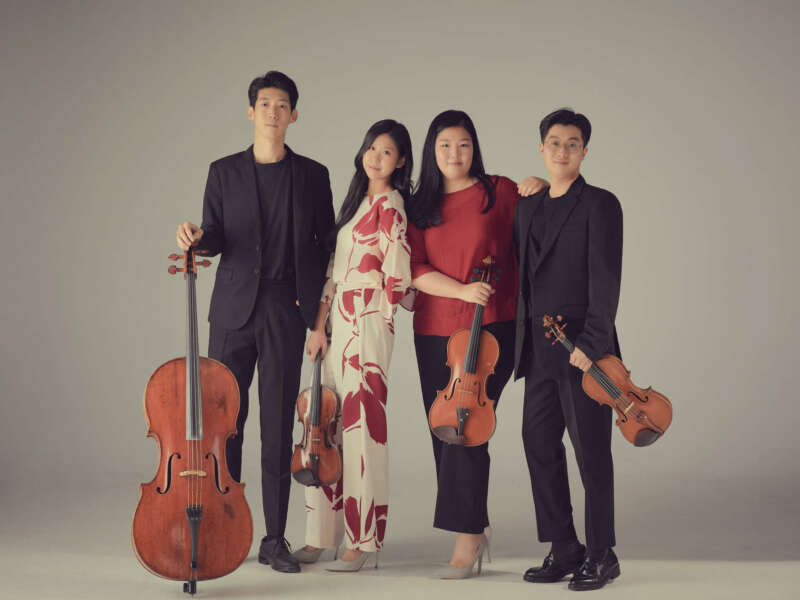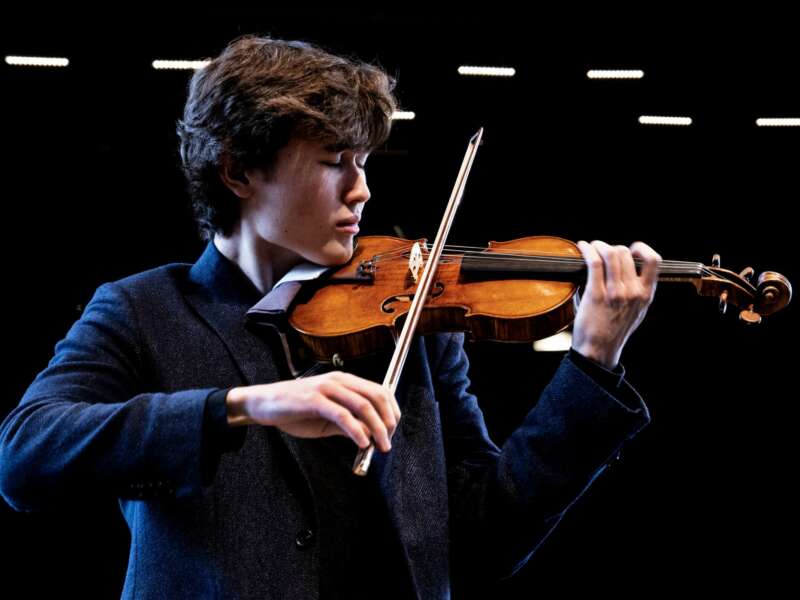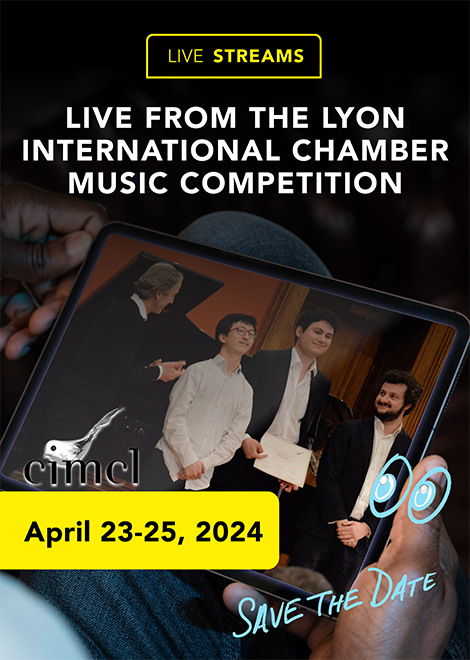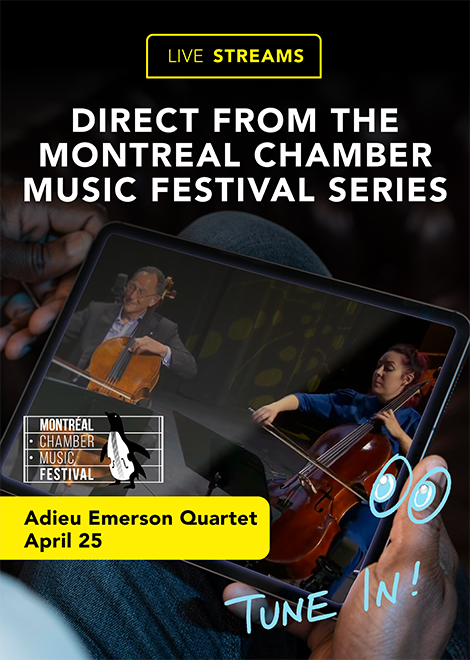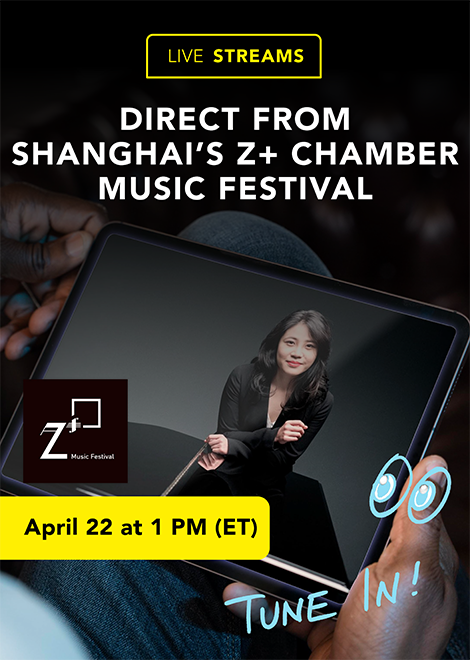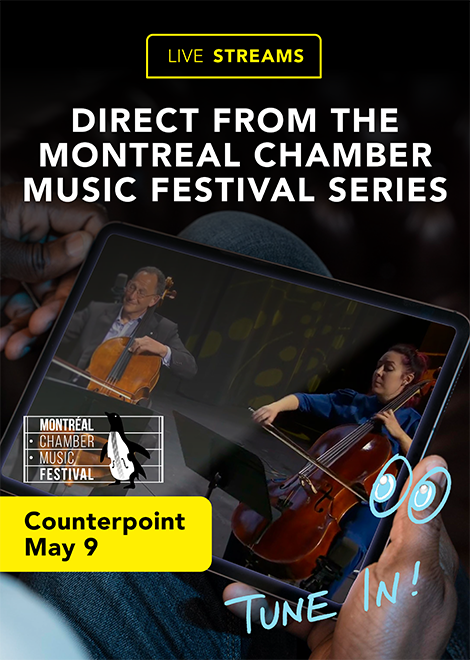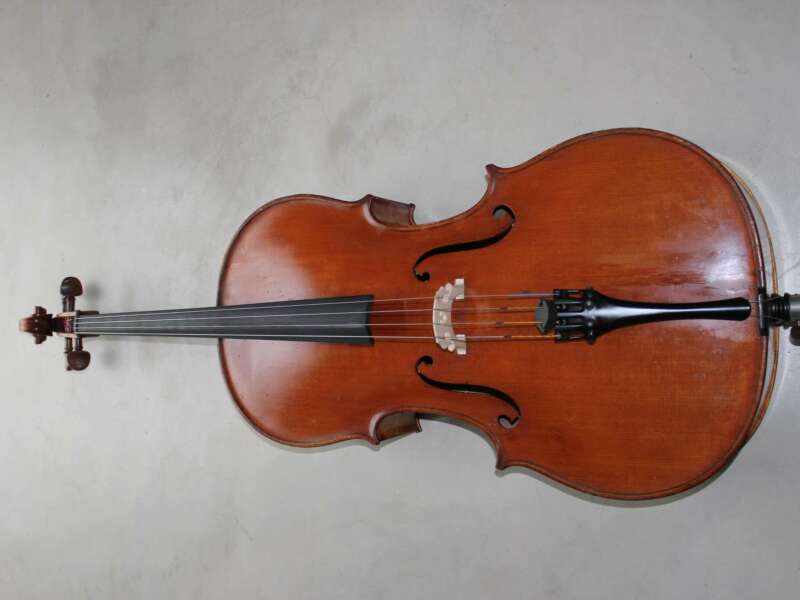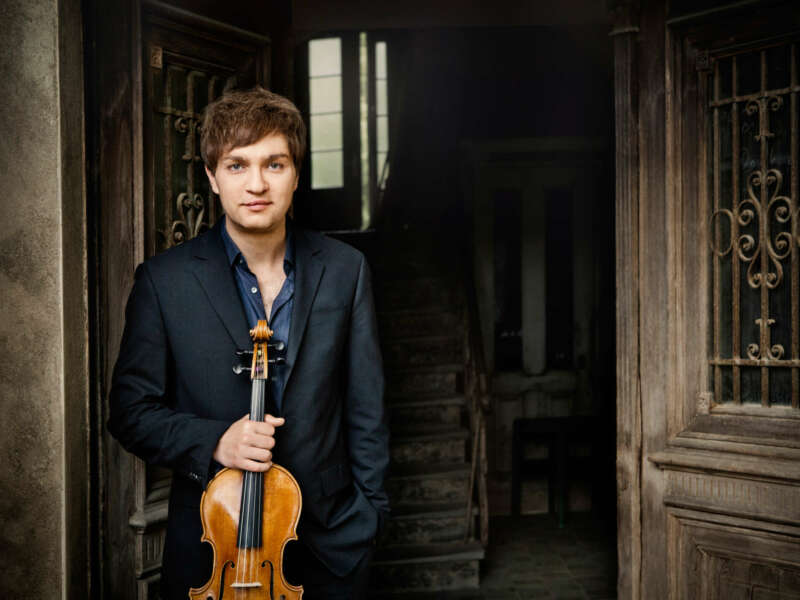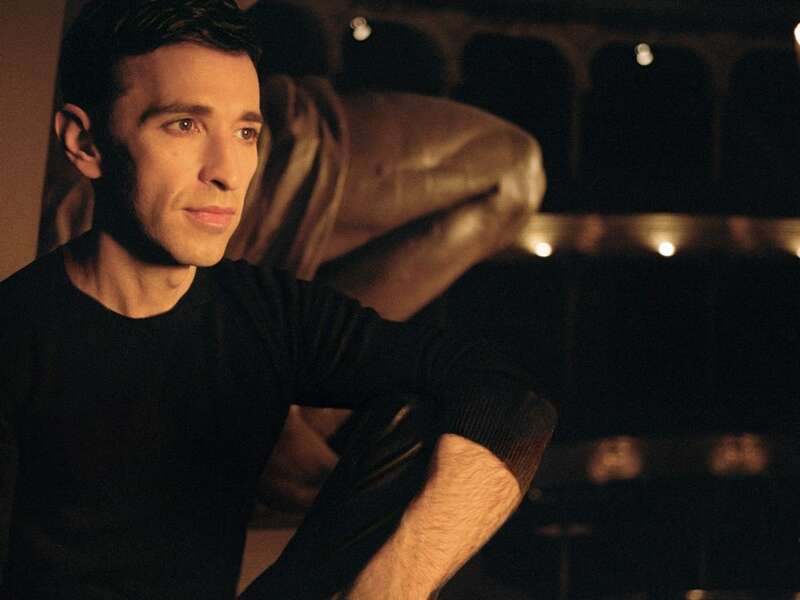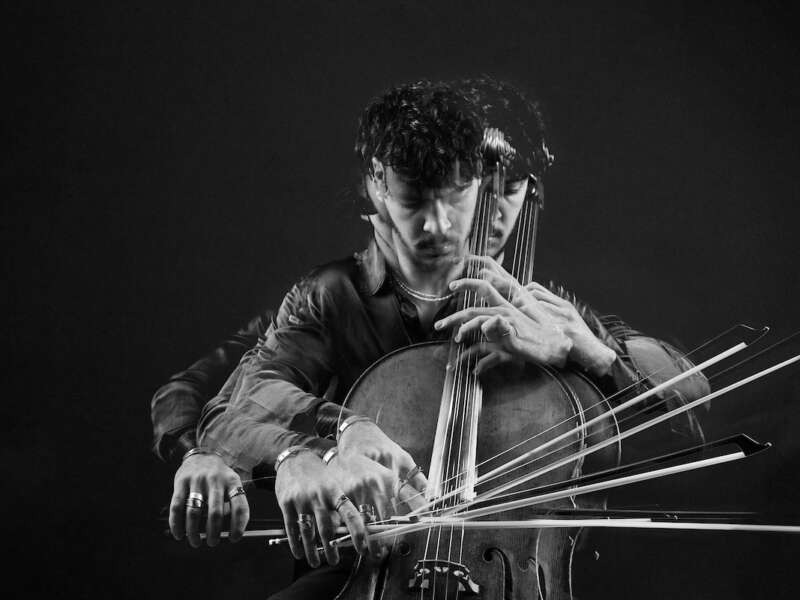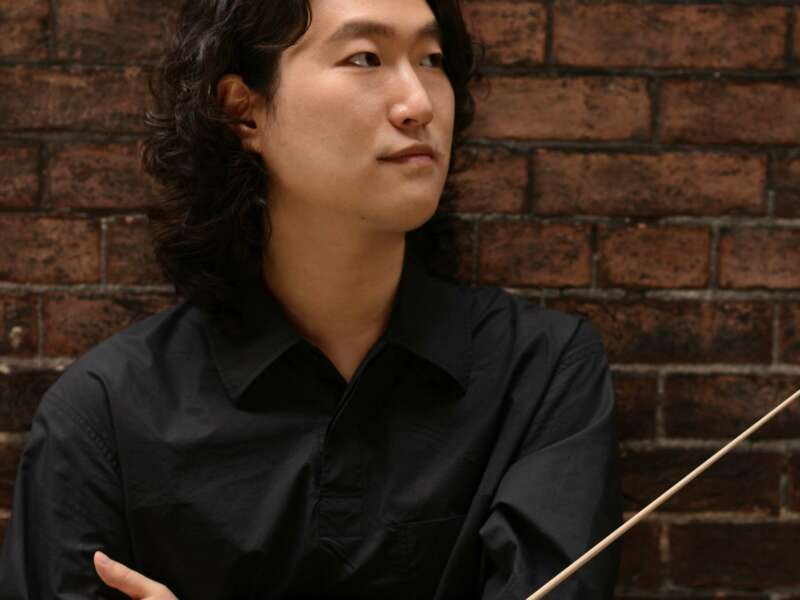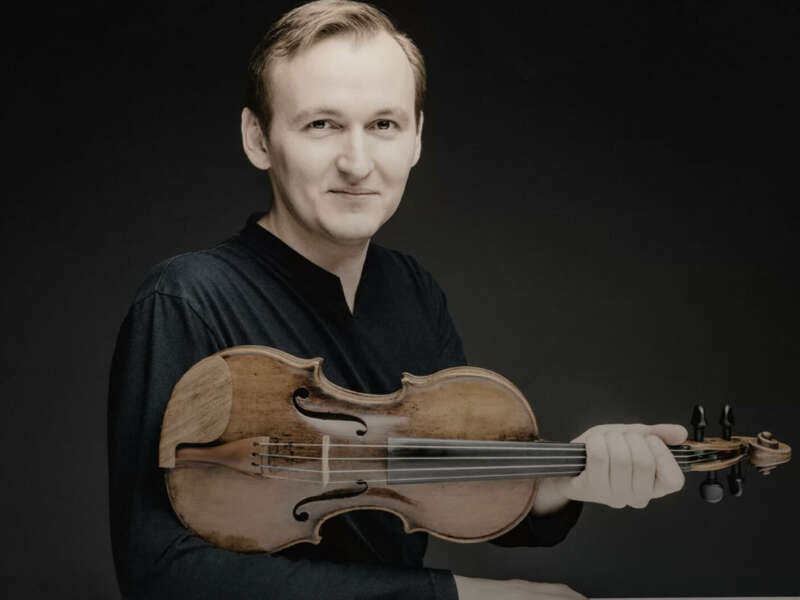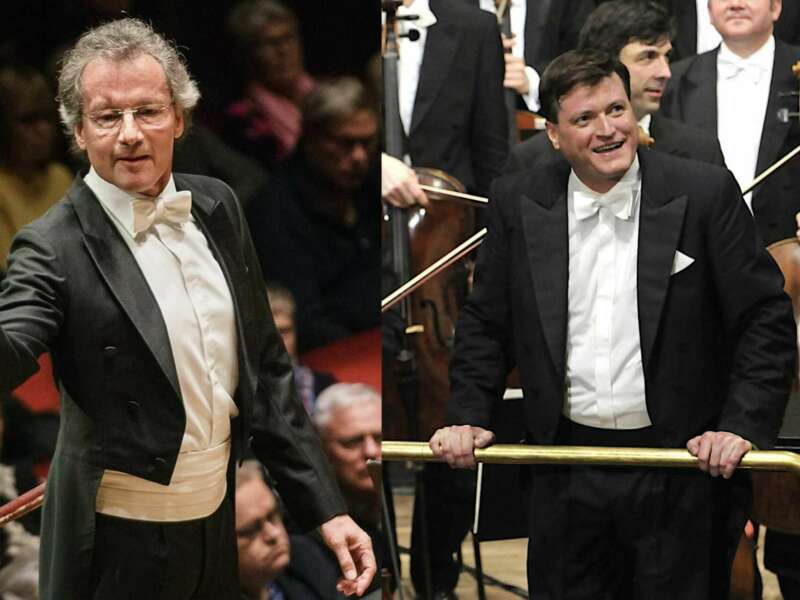Get to Know Composer Iman Habibi and His Work, "Shāhīn-nāmeh"
The Violin Channel spoke with Habibi about their work with the Azrieli Foundation and the upcoming U.S. premiere on March 28
The Azrieli Music Prizes (AMP) – celebrating 10 years of excellence in music creation – will return to New York City with three remarkable new works for soloists and orchestra by Iman Habibi, Aharon Harlap, and Rita Ueda.
On March 28, at Lincoln Center's Alice Tully Hall, the Orchestra of St. Luke’s will perform these three U.S. premieres, led by guest conductor Steven Mercurio, alongside internationally renowned soloists Sharon Azrieli, Sepideh Raissadat, Naomi Sato, and Zhongxi Wu.
The Violin Channel talked with Iman Habibi to discuss his piece "Shāhīn-nāmeh," which you can hear below:
What are you excited about for the US premiere of your piece?
What excites me the most about every performance is the opportunity to make music with new and old friends. I have had the fortune of working with musicians from the Orchestra of St. Luke's many times in the past, and I am excited to go through a new journey with them through this music. Every performance etches new memories into the music for me, new responses and reactions that I relive with every repeat performance, and new discoveries that help me go further the next time I sit at my desk. So what my friends at OSL bring into this music will live with me for the rest of my life.
How has the piece evolved since you composed it?
A piece is never done until after its post-premiere revisions. No matter how meticulously we plan every detail that goes into the score, prior to the premiere, the music primarily lives in our imagination. It is only after it is realized that we can assess its strengths and weaknesses, and make any final adjustments (and we do not always have the luxury of repeat performances with orchestral works). It is so incredibly important for us, composers, to have the space and time to make such revisions. But once these revisions are done, the piece then mostly lives and evolves with the performers that breathe life into it. In this particular case, Shāhīn-nāmeh, we have a piece that allows its soloist freedom to improvise around written notes, and as such, the most apparent transformations of the music would happen in the solo part.
What are you gaining from the experience of working on your piece with different orchestras and conductors?
There are always new challenges that arise with different groups of players; every acoustic space allows a different hearing, and the tempi are always different. The kaleidoscopic perspective this brings about help me improve on my work as a composer. It teaches me to write music in such way that can still work effectively at slightly different tempi, or with slightly different balancing of the instruments.
How does it feel to hear your pieces with (we’re guessing) slightly different interpretations?
The interpretation is always different, even when the same group of performers perform the piece multiple times, and I think this is one of the greatest joys of being a composer. The best performers I have worked with have been able to take what I have written out of the page, make it theirs, and show it to me in a new light that is equally convincing, or in some cases, more convincing than how I had originally imagined the music. There is nothing more rewarding than the realization that a performer has arrived at a different, possibly better or equally valid, interpretation of your own music and have truly made it theirs.
This NYC Concert is your last commitment for the Azrieli Music Prizes. How would you characterize your prize journey? What would tell other composers about the AMP experience?
The Azrieli Music Prizes went above and beyond to make sure that I had every tool I needed to make the best music I possibly could, and I am extremely grateful to them for that. They put their trust in me with their international Azrieli Commission for Jewish Music, addressing the question of "what is Jewish music," despite the fact that I am not Jewish. They gave me a blank canvas with as many colours as I could possibly dream of having, and then gave me important platforms to showcase the final product. Their support extended far beyond the initial prize or performance, and continues in perpetuity through their Azrieli Music Prizes Performance Fund, which will provide up to $25000 CAD in support to any groups interested in performing Shāhīn-nāmeh in the future. I strongly urge everyone to apply to Azrieli Music Prizes. This is the finest of all composition prizes or competitions I know of in the world today.
How did Shāhīn-nāmeh change between the premiere and the recording, specifically in the 4th movement? How did the recording process go?
The 4th movement was primarily improvised at the premiere. Shortly before the performance, Mahsa Amini's death inspired widespread protests in Iran, a moving experience for the Iranian community worldwide. Sepideh Raissadat (our soloist) wanted to take more freedom with this movement as a personal tribute to the suffering of our fellow Iranians. I heartily agreed with her on this decision. What Sepideh performs on the recording, which is quite different, is closer to what I had written for her in the score. It is a more elaborate improvisation on my notes. Pouyan Biglar's performance of this movement in London with the Philharmonia is nearly identical to what I had notated, and it was Pouyan's choice to stay true to the original writing in his performance. The piece is designed in such way that the performer is free to either perform the written notes exactly as they are, or to improvise around them. Performers active in the Persian classical/traditional world are incredible improvisers, and I wanted to give them freedom to showcase that side of their art as well.
may 2024


